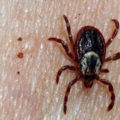
US scientists have found that a type of herpes-virus infection of the eye is associated with age-related macular degeneration, a disease that causes blindness in the elderly.
The findings, appearing in PLoS Pathogens, indicate that human cytomegalovirus causes the production of vascular endothelial growth factor (VEGF), a signal protein that regulates the formation of new blood vessels. With the formation of these new blood vessels, retinal tissue destruction occurs, leading to the development of age-related macular degeneration and eventually, blindness.
“Prior to this work, cofactors for the development of AMD [age-related macular degeneration] included genetics, a high fat diet and smoking. Now, we are adding an infections agent as another cofactor,” said immunologist Richard D. Dix, from the Georgia State University Viral Immunology Center.
Identifying the virus as a cofactor in the development of AMD opens up new paths for treatment, Dix says. One route could include reducing the viral load by treatment with an antiviral drug or modifying the genetics involved in the upregulation of VEGF. “If we can knock down a certain gene or genes of the virus that stimulates VEGF production, we might be able to decrease it production and minimize AMD,” Dix said.
Related:
Discuss this article in our forum
Compelling new evidence for prostate cancer virus
Physicists to probe flu virus for macro quantum effects
Herpes Virus Transferred To Infants Via Parental DNA
Controversial bird flu research finally published


















Comments are closed.